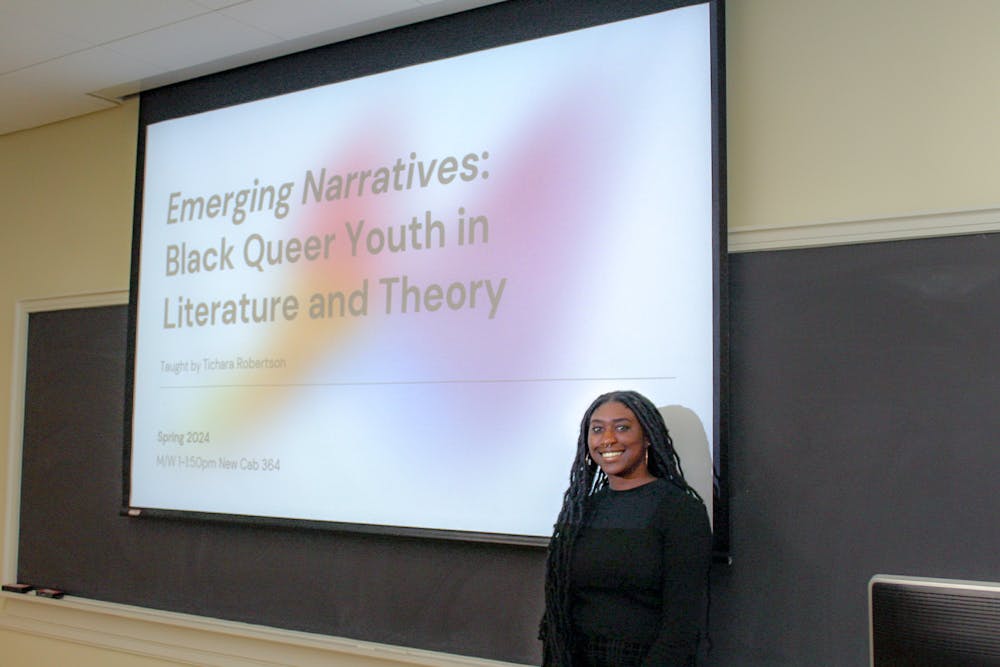Fourth-year College student Tichara Robertson serves as the University’s esteemed President of Student Council — but even when she is not directly engaging with students through the council, the experiences of her fellow students are at the forefront of her mind. This semester, Robertson will not only represent the student body, but also lead and educate them in a class of her own design.
Robertson’s syllabus consists of five books centering on LGBTQ+ Black characters, most of which are geared towards middle-grade children and young adults.
Last semester, Robertson took a class on pedagogy from the Cavalier Education Program in the Center for Teaching Excellence. This class allows students to craft their own courses that may later become open to enrollment by students. In the class, students are equipped with a variety of teaching strategies and techniques. The program allowed Robertson to develop her own curriculum and design a syllabus based on her academic interests.
After successfully completing the class, Robertson submitted her course to the Student Council Academic Affairs agency for review and was selected to teach. Now, Robertson is leading the class she designed on LGBTQ+ Black youth in literature and theory.
“We're starting off with ‘All Boys Aren't Blue,’ which is a memoir by George M. Johnson,” Robertson said. “It’s their tale of growing up Black and Queer and what sort of struggles come with that — then we'll be moving straight into fiction.”
Following “All Boys Aren’t Blue,” Robertson’s syllabus continues into novels like “You Should See Me in a Crown” by Leah Johnson, “Felix Ever After” by Kacen Callender, “Pet” by Akwaeke Emezi and “The Stars and The Blackness Between Them” by Junauda Petrus.
Robertson decided to teach these particular books because she hopes they will facilitate thoughtful conversations about topics that often go ignored.
“The unfortunate fact is that a lot of books center whiteness — or a lot of the books that are elevated center whiteness — as well as heterosexuality,” Robertson said. “What we'll be uncovering [in this class] is what do [books centered on Black and Queer characters] do? [We will ask] what themes are talked about and how we can translate them to the possible impact on Black Queer youth.”
Robertson chose books that were written specifically with young, Black and LGBTQ+ readers in mind. As a longtime fan of young adult novels, she wanted to legitimize the intellectual value of a genre that is often devalued because of its audience.
One of Robertson’s primary goals for the class is to teach students about the intersections of different social identities.
“Intersectionality is important. There are a lot of books about Black youth and a lot of books about queer youth. I think that it's worth discussing that intersectionality and bringing visibility to those books [with this overlap] that don't have as much visibility,” Robertson said.
After reading and discussing each book on the syllabus, Robertson hopes that students in her class will walk away with a better understanding of the field of Black Queer studies and be better equipped for the conversations that go along with the discipline.
As a double major in Political and Social Thought and African American and African Studies, Robertson plans on using her own academic interests and experiences in these arenas to inform conversations.
“I will be adding context through talking about Black Queer theory because it is a relatively new [field of study] and [has a] long history of theory as a discipline in academia,” Robertson said. “[The course] has a lot of rich ideas about gender, race, sexuality and how they’re intertwined.”
Hoping that students will learn from one another as much as from her, Robertson is excited for the multitude of new perspectives her students can offer to one another.
“I want to be able to uncover [new ideas] with [students] over the course of the class so that when they come out of it, not only will they have an understanding of [the Black and Queer] experience, but also a lot more empathy and much more understanding of how to be a better citizen and a better neighbor,” Robertson said.
Students can enroll in Robertson’s 2-credit course — listed as INST 1550 in SIS — to learn more about intersectionality, literature and the queer Black experience this semester. The class meets every Monday and Wednesday from 1:00-1:50 p.m. and is graded on a CR/NC scale.







